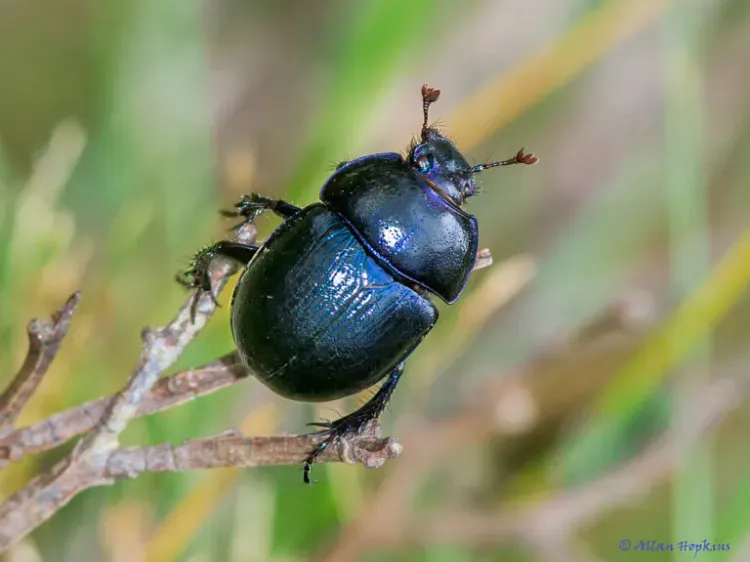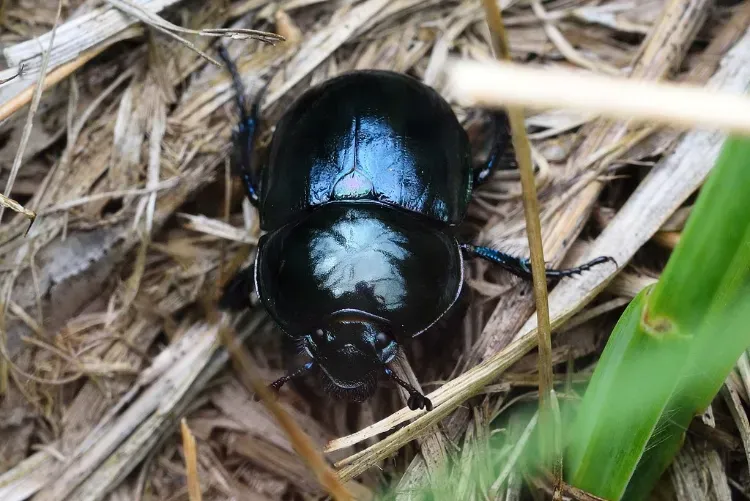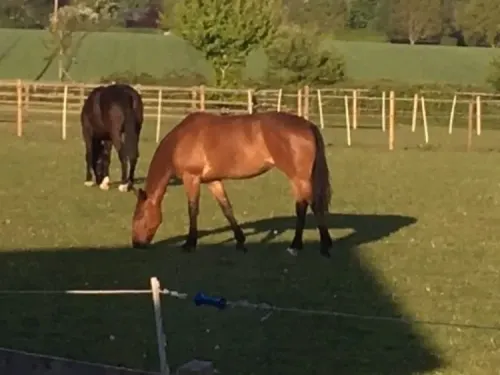
Money-saving horse worming makes sense for the environment, our pockets, and our horses’ health. So it’s a bit of a no-brainer because horse worming must not be overdone and worm control methods must be environmentally sustainable. Here are the reasons why:
- Horse wormers are becoming less effective with horse worms becoming immune to the active chemical ingredients.
- The chemicals in wormers affect dung beetles living in the pasture.
- Factories producing horse wormers use up finite resources and cause pollution.
Old fashioned advice
"I don’t feed worms I feed horses and need to worm every 8 weeks."
In addition, chemical horse wormers are expensive while other control methods are mainly free. Just read on and learn all about money-saving horse worming.
Why are Horse Wormers Less Effective?
This is because the active ingredients kill off many, but not all of the targetted worms. The remaining worms are naturally resistant and these parasites are left to multiply and create a super-resistant strain. Over time the worm burden becomes greater as these resistant worms result from the survival of the fittest.
How do Horse Wormers affect the Environment?
There are many species of dung beetle and they all recycle horse dung. This recycling process improves the soil structure and increases the organic content of the soil. The presence of dung beetles also breaks the parasitic horseworm life cycle. This is because recycled dung is no longer available to incubate parasitic eggs. This reduces the number of larvae that hatch and climb up the grass stalks to re-infect horses.

The Dung Beetle is in Decline
In many areas of the UK dung beetles are in serious decline and this is linked to the effects of chemical horse wormers. So we have a bit of a problem as the parasitic worms are becoming resistant to horse wormers and their numbers are not being kept in check by dung beetles.
Money-saving Horse Worming
Money-saving horse worming involves careful pasture management, analysing dung for the presence of certain worm species, and targeting specific worms. This is sustainable horse worming and this is the only way forward.
1. Careful Pasture Management
This is the starting point and significantly reduces your horse’s worm burden. The best practice is outlined below.
- Rotate the horse pasture so that it is adequately rested.
- Put cattle or even sheep on horse-rested fields for some of the time.
- When horses are paddock grazing have their dung removed daily.
This is good practice because horse dung is removed and this reduces the number of parasitic larvae the horses pick up. In addition, cattle and sheep are not hosts for parasitic horse larvae and this breaks the cycle of reinfection. Finally, dung beetles can do a great job with the cattle/sheep dung and this improves the pasture quality.
If you cannot follow all of the above remove the horse dung from your paddocks as a priority unless your acreage is so big that this is impossible.
2. Analysing your Dung for the Presence of Certain Worm Eggs
This is important as it will inform you of the presence of some worm species. Only the eggs of small redworm, large redworm, and large roundworm are detectable. You must remember that encysted small redworm are detectable through a blood test, while tapeworms are detected through saliva or blood tests. There is no way to test for botfly larvae in horses.
3. How to target Specific Worms
Daily pick up horse dung to reduce or eliminate your worm problems and keep small redworm, large redworm, and large roundworm in check. Carry out a dung test in late Autumn and if the results are egg free you are doing a great job. However, you may have a low but acceptable egg count. In either case, you need to know what to do next, so here are some tips.
1. If no eggs are detected it is doubtful that your horse has encysted small redworm so wait until the following Autumn to worm against encysted small redworm.
2. In the good event that your egg count remains zero for second-year worm against encysted small redworm every other year.
3. If you have a low egg count use a wormer that eliminates encysted small redworm, small redworm, large redworm, and large roundworm.
For Tapeworm
In the Autumn use a equisal tapeworm test and depending on the results worm against tapeworm. Any horse with a borderline or moderate to high result must be dewormed to eliminate tapeworm. In the Spring retest horses that were not treated for tapeworm and deworm any with a borderline or moderate to high result.
Bot Fly Larvae
Bob flies mainly lay eggs on horses’ legs and shoulders. These are licked off and hatch as maggots that bury into the horse’s lips and gums and then migrate to the stomach. However, a bot knife will remove eggs from the horse’s legs. So daily inspection when the bot flies are a nuisance will generally avoid this problem. This means being vigilant and daily removing eggs to prevent a problem.
Never Administer Too Much or Too Little Horse Wormer
When horses need to be wormed it is very important to administer the correct dose for their weight. This means the horse’s weight must be known with a degree of accuracy.
In Conclusion
Money-saving horse worming makes sense and as horse owners, we have to target specific horse worm burdens or risk the possibility of not being able to treat them at all. It is our responsibility to adopt the best practices to control parasitic horse worms for the sake of our horses and the environment.

Article Suggestion
Small Redworms Kill Horses
